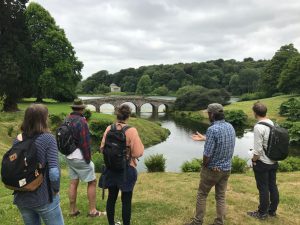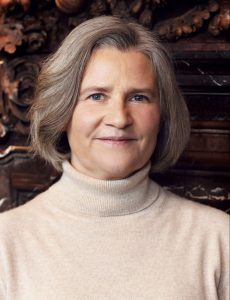The University of Bristol is home to a vibrant and thriving community of more than 3,000 postgraduate researchers from all over the world, with around 400 in the Faculty of Arts. Whether working towards a PhD or studying for a master’s degree – taught or by research – students in the Faculty of Arts can benefit from world-class academic and professional training and cross-disciplinary collaborations.
Let’s take a look at just a few of the many opportunities available to our postgraduate students within the Faculty.
Research and collaboration opportunities
The Faculty of Arts hosts several Faculty Research Centres which act as hubs for innovative, cross-disciplinary research. Our postgraduate research students are encouraged to join a Centre, enabling them to build strong networks and engage in collaborative research with colleagues from across the University and beyond. With each Research Centre working in partnership with international institutions, Bristol’s Faculty of Arts has a truly global reach and presents unique networking opportunities.
One recent example stems from the Centre for Medieval Studies. Academics from the Centre were awarded a €2.4 million EU Horizon grant to train a new generation of medievalists from across Europe in the history of the early book. Most of the funding will go towards financing postgraduate research studentships, including two at Bristol. Co-Directors of the Centre Professor Ad Putter and Professor Marianne Ailes said: “Importantly, we will train a cohort of young researchers who will, from the beginning of their research careers, see international collaboration as integral to how they work.”
Research placements
Industrial placements will form the cornerstone of the research studentships mentioned above, enabling the Faculty’s strong research partnerships with a variety of organisations and institutions to enhance the student learning experience. Professor Putter and Professor Ailes said: “The placements give students the transferable skills to succeed outside academia and, for those who remain in university research, will provide skills in public engagement and impact which will stand them in good stead.”
A further example can be seen on one of our popular MA courses. Past and current placement partners on our MA Medieval Studies course include the Churches Conservation Trust, Oxford’s Bodleian Library, Bristol Archives, and Bristol University’s own Arts and Social Sciences Library Special Collections. The latest addition to the impressive list of over a dozen placement partners is Magdalen College Library and Archives, Oxford.
These research placements have proven invaluable to both students and partners from the cultural heritage sector, as Director of the MA Medieval Studies programme and its Placement unit, Dr Ben Pohl, explains: “Our students regularly highlight the transformative effect that these placements have had on their future career plans, and just how well prepared they felt for a career in the cultural heritage sector as a result of this bespoke experience. Our partners, in turn, have been full of praise about the students they have hosted and the innovative ways in which their work has helped them connect with audiences both within academia and amongst the general public.”
Indeed, several of our students have found employment in the cultural heritage sector upon graduation, some even at the very institutions at which they undertook their placements during their degree.

Postgraduate Research Summer Internships
Postgraduate Research (PGR) students within the Faculty of Arts are eligible to undertake a PGR Summer Internship, a scheme designed to enable supervisors and postgraduate research students to work together on a project to achieve common goals. The six-week internships provide an opportunity for focused research on collaborative projects, which this year ranged from authoring a historical research article on Anglican slave missions to developing a website for a British Academy Knowledge Frontiers Project that explores energy access and resilience among forest peoples of Brazilian Amazonia. PGR interns receive mentoring and guidance throughout their internship. This year’s cohort attended a welcome session led by the Faculty’s Research Impact and Knowledge Exchange Manager, Dr Hannah Pearce, which encouraged interns to use the experience to develop their skills, consider their strengths and identify opportunities for reflection.
Alice Kinghorn, a third-year PhD History student, undertook a PGR internship in summer 2021, and found it to be a rewarding experience: “My internship involved recording interviews with staff and students about current research in the Faculty for our YouTube playlist. I thoroughly enjoyed it, as not only did it allow me to practice valuable communication skills, I also learnt how to edit videos and use graphic-creation software. I undertook a second internship in summer 2022, where I had the opportunity to apply these skills to create a ‘Day in the Life of a PhD Student’ video. The internship scheme has been a fantastic addition to my studies.”
Keep checking back for more Arts-related content, including our upcoming blog series all about the PGR Summer Internships.
Find out more about postgraduate study within the Faculty of Arts
Learn about PhD Scholarships in the Faculty of Arts
Discover research in the Faculty of Arts




 Professor Karla Pollmann, Dean of the Faculty of Arts
Professor Karla Pollmann, Dean of the Faculty of Arts Dr Shelley Hales, Faculty Admissions and Recruitment Officer
Dr Shelley Hales, Faculty Admissions and Recruitment Officer Michelle Coupland, Faculty Manager
Michelle Coupland, Faculty Manager